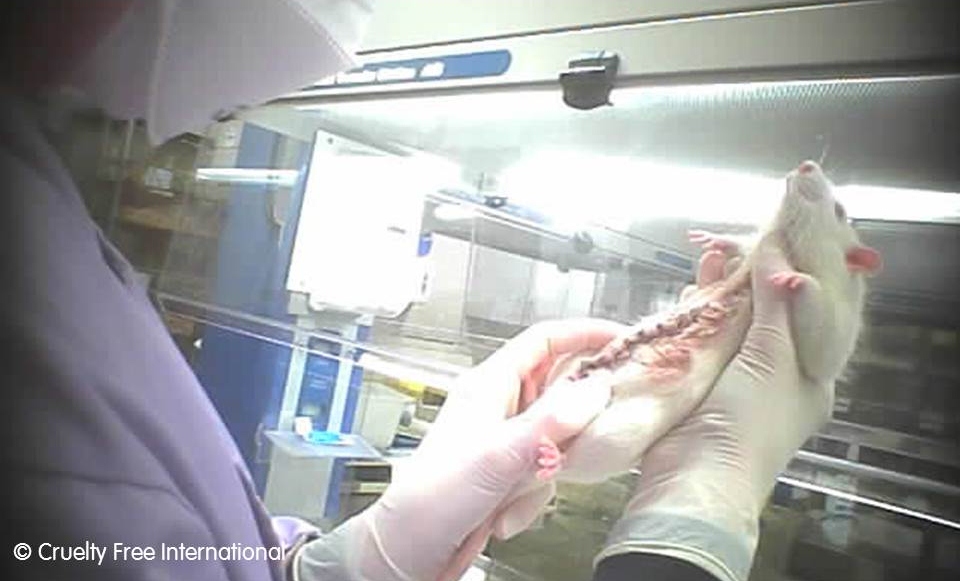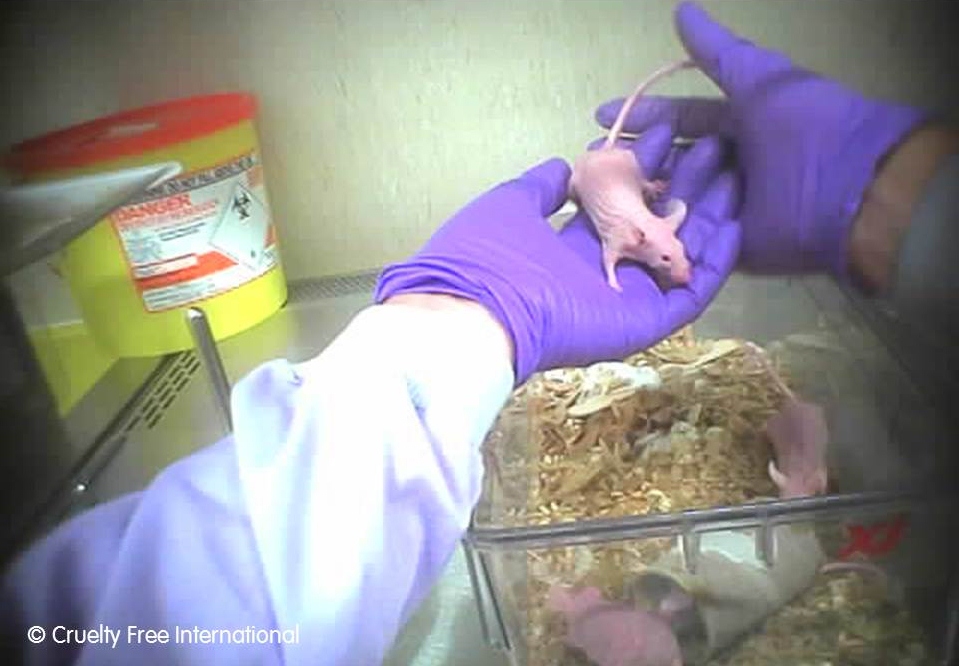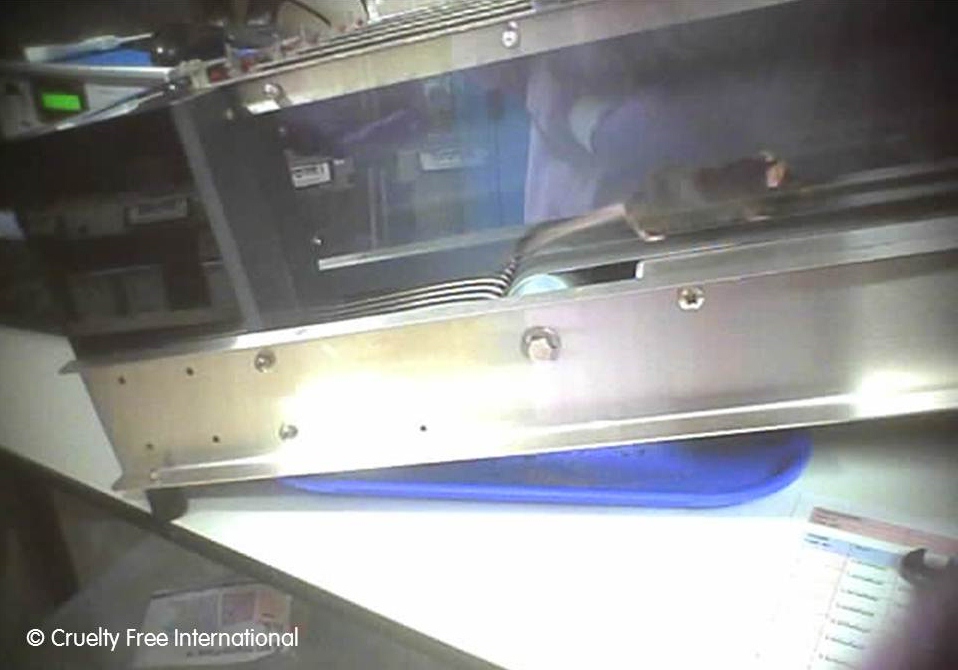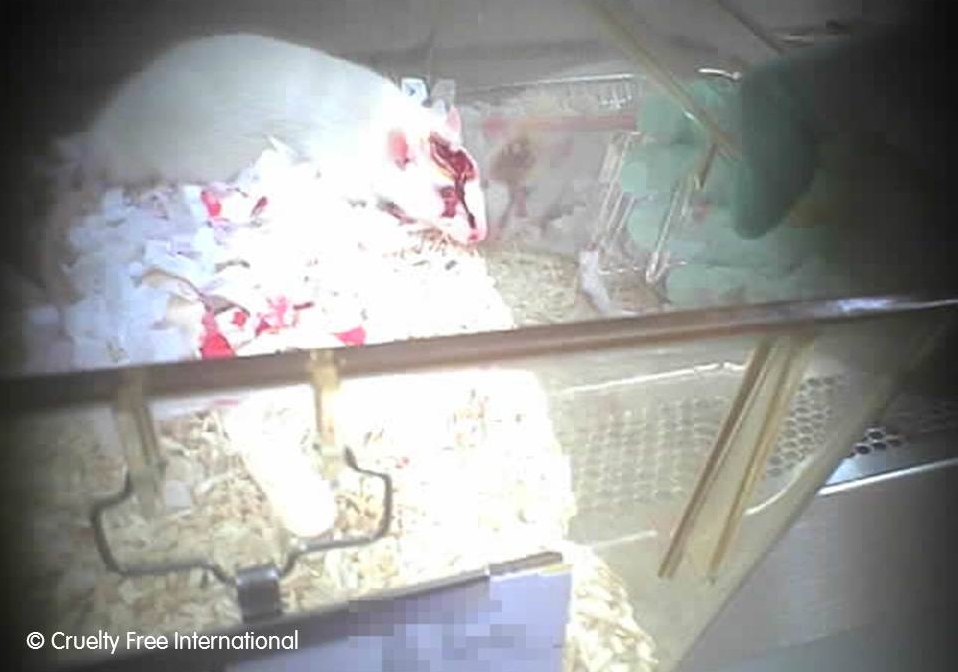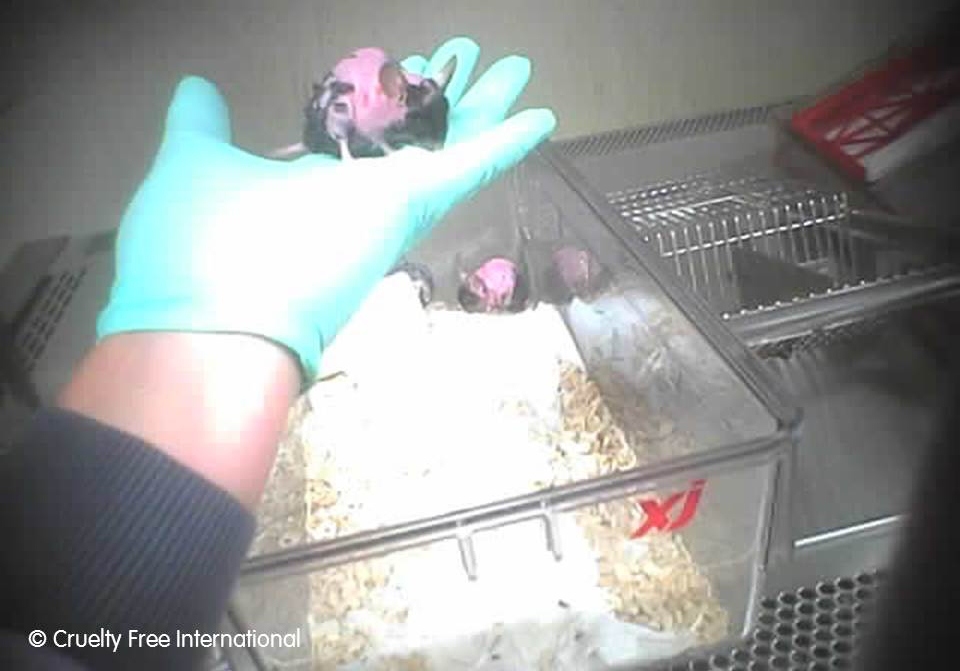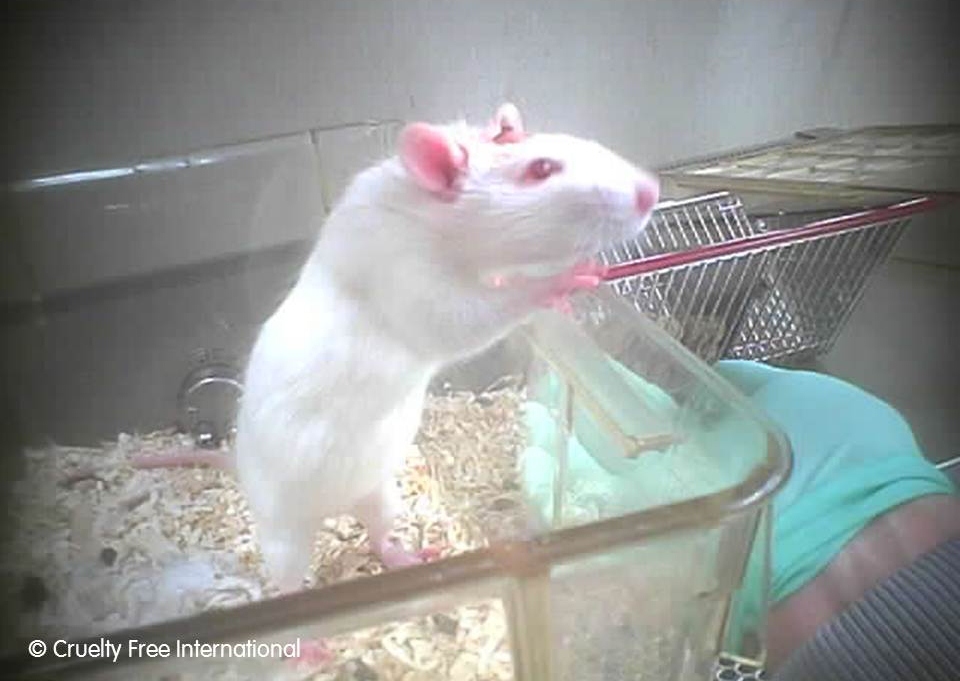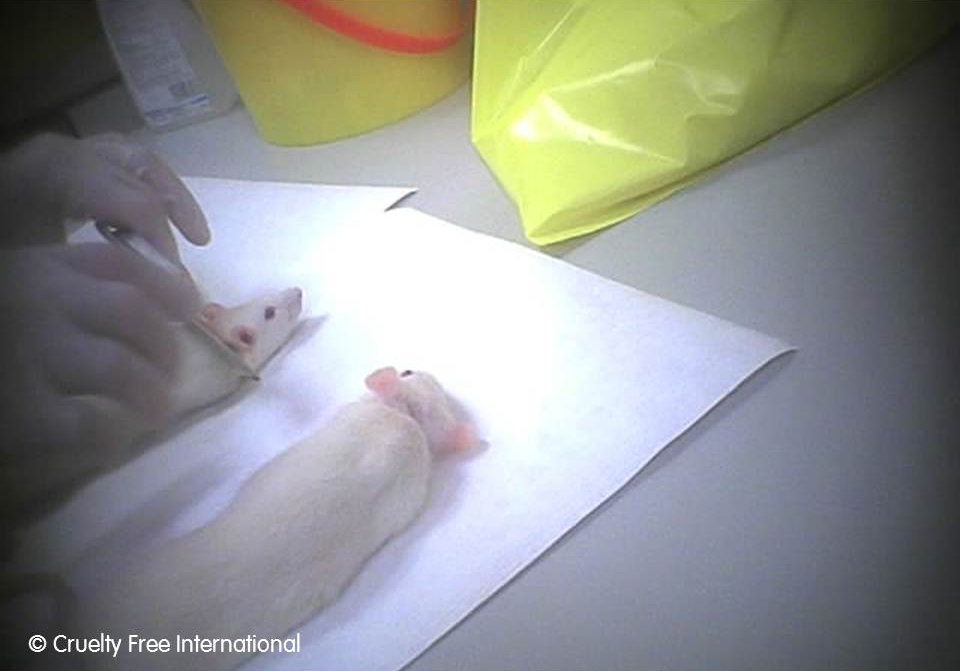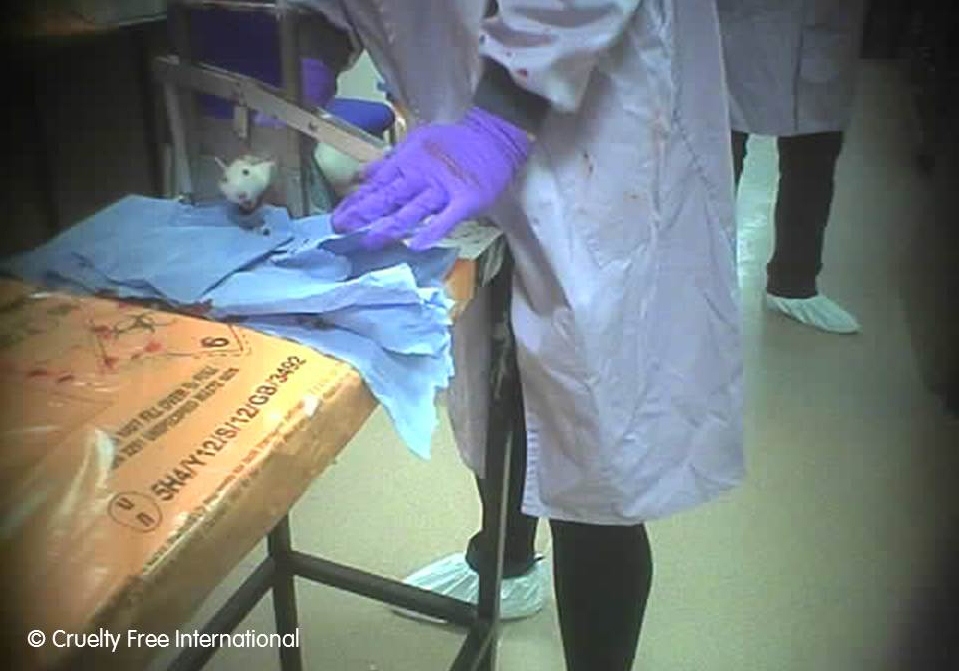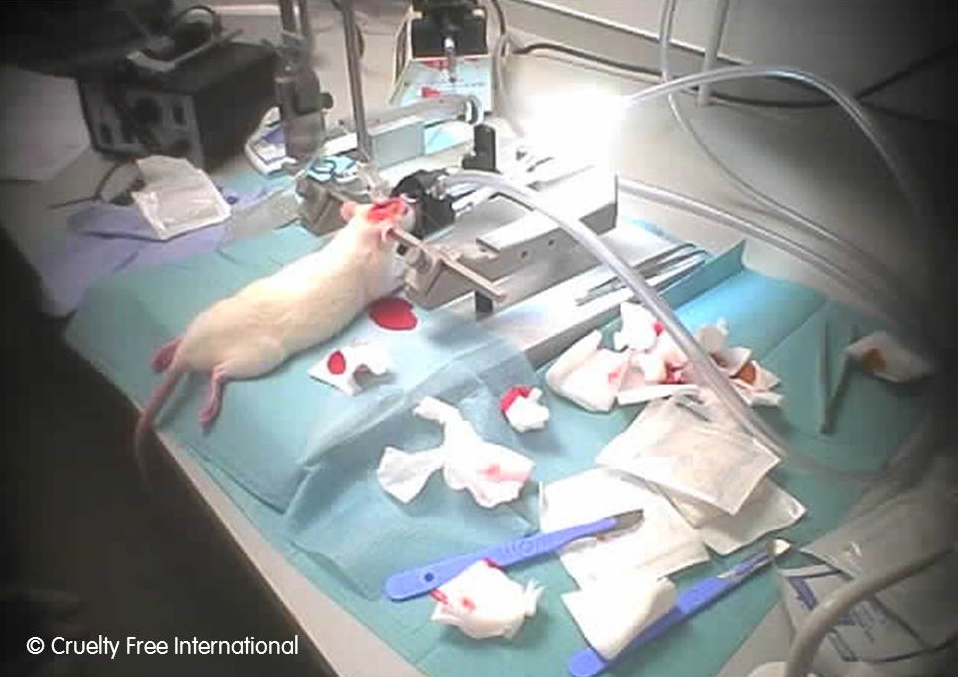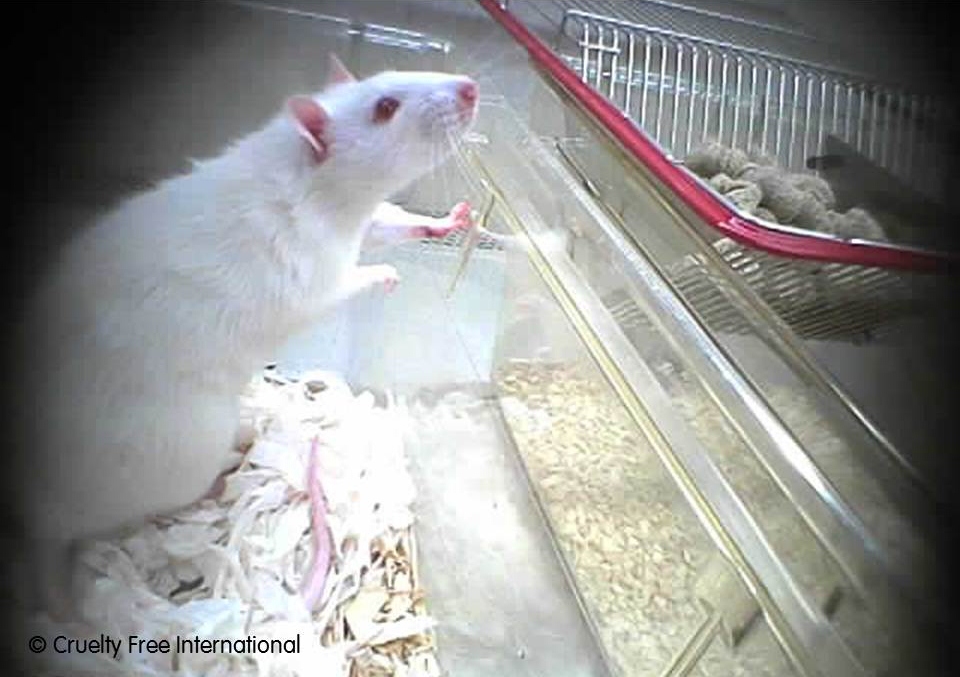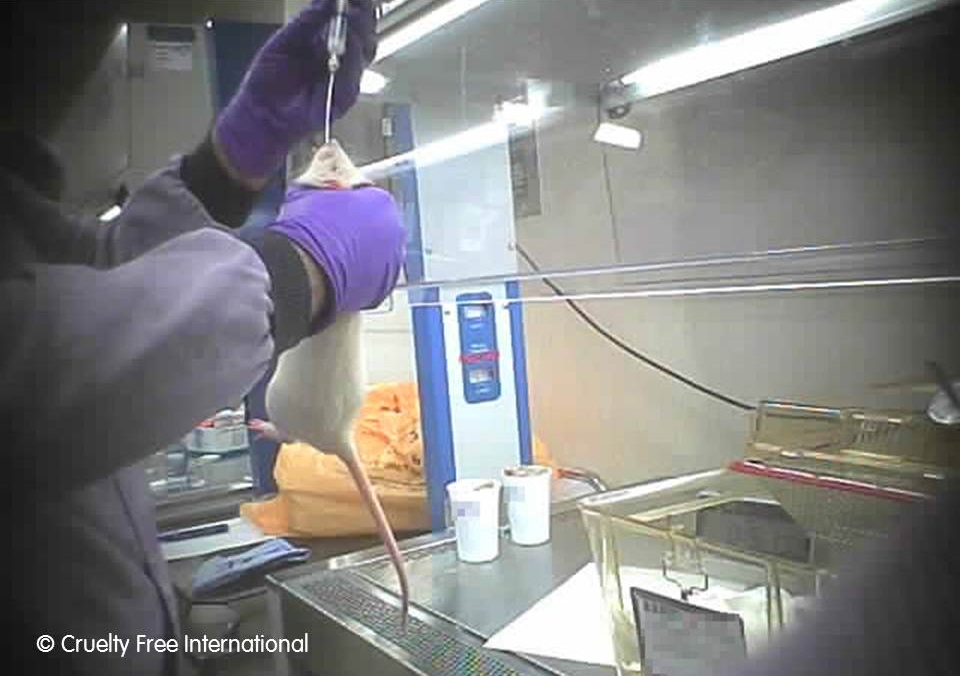The appalling plight of animals in laboratories at one of the UK’s leading universities.
In 2012 Cruelty Free International (operating as BUAV) went undercover at an animal experiments laboratory at Imperial College London. We uncovered the terrible plight of animals used in research at this “world-leading” UK university.
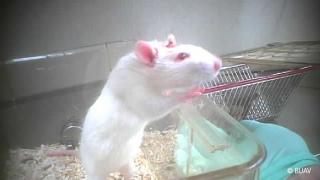
Our findings
Our investigator worked for seven months at Imperial College London, ranked as one of the best universities in the world. She documented a catalogue of misery and poor practice shedding new light on the reality of animal experiments in the UK. This included:
- animals who suffered even more than was allowed in the experiment because of staff incompetence and neglect
- a failure to provide adequate anaesthesia and pain relief
- breaches and lack of knowledge of UK Home Office project licences which set out what can be done to the animals used in these experiments
- the shocking way in which animals were killed.
WARNING video contains footage that some viewers may find upsetting
Animal experiments
Research was carried out on mice and rats at Imperial College. This included inflicting major organ damage and surgical mutilation, or double kidney transplants. Other animals were forced to suffer invasive surgery where tubes were implanted into their heads so that substances could be injected into their brains.
Some animals were restrained while a long tube was repeatedly forced down their throats and substances injected directly into their stomachs. Others were forced to run on treadmills to avoid electric shocks until they were exhausted.
Suffering
The animal suffering was, in many cases, severe. Animals were found with weeping or bleeding head and abdomen wounds, diarrhoea, lethargy, hypothermia and extreme weight loss, amongst many other serious symptoms.
Many animals died during or after surgery, and others had to be killed because of the level of their suffering. Methods used to kill the animals included:
- carbon dioxide poisoning in gas chambers
- breaking the animals’ necks
- beheading live animals with a guillotine
Key concerns
Researchers underestimating animal suffering.
Staff poorly monitoring the animals, leading them to suffer even more than was allowed.
Researchers lacking knowledge about how much they were allowed to let the animals suffer and when they should kill the animals to stop their suffering.
Staff incompetence in killing animals, leading to unnecessary animal suffering.
Using a guillotine to decapitate live rats.
Staff incompetence in surgical and other procedures, resulting in animal deaths and suffering.
Unsupervised researchers with little experience anaesthetising and carrying out surgery on animals.
Staff failing to provide adequate anaesthesia and analgesia to animals used in experiments.
Loud pop music played throughout the laboratory, adding to animals’ distress. The music was played during surgery, while animals were recovering and even during killing.
What happened next?
The Home Office, which regulates animal experiments, subsequently conducted its own investigation and found “a generally poor culture of care” at the College.
In December 2013, the UK government issued a notice to Imperial requiring substantial improvement in key areas, including the use of alternative methods to minimise animal suffering. It later published a report of its investigation. Eight people were sanctioned with letters of reprimand and a requirement to complete further training, and Imperial was ordered to implement changes to its management structure, practices and training programmes. The establishment licence holder stepped down following a “discussion” between the institution and then Home Office minister Norman Baker.
Serious criticisms of animal research at Imperial were also made by an independent review commissioned by the College and the Government’s own advisory body. The Brown Inquiry recommended an increase in staff and greater independent review of animal welfare out-of-hours and at weekends. Imperial claimed to have implemented all the recommendations made by the Inquiry, but we were able to show through Freedom of Information requests that they still do not provide round the clock care.
The Home Office report claimed that inspectors investigated 180 allegations by Cruelty Free International of breaches of the law by researchers and found only five to be established. In fact, it emerged that the inspectors only formally investigated 18 allegations, finding five sets proven, as well as wide-ranging general deficiencies at Imperial College.
However, animal researchers – and the College – seized on the ”only five out of 180” claim to undermine the credibility of Cruelty Free International and our investigation. This misrepresentation has caused considerable damage and we had to ask the High Court to force the Home Office to amend their report. Under strong pressure from the judge, the Home Office finally agreed to the correction. She noted that Cruelty Free International had been forced to come not only to the door of the court but through it before the Home Office did the sensible thing.
The case we took also challenged the weak penalties imposed on Imperial licence-holders. Even where researchers were found to have caused, without authorisation, “a major departure to animals’ usual state of health or well-being”, they simply received a reprimand with a requirement for more training. However, the judge decided that the penalties for Imperial College London fell within the Home Office’s wide ranging decision-making powers.

